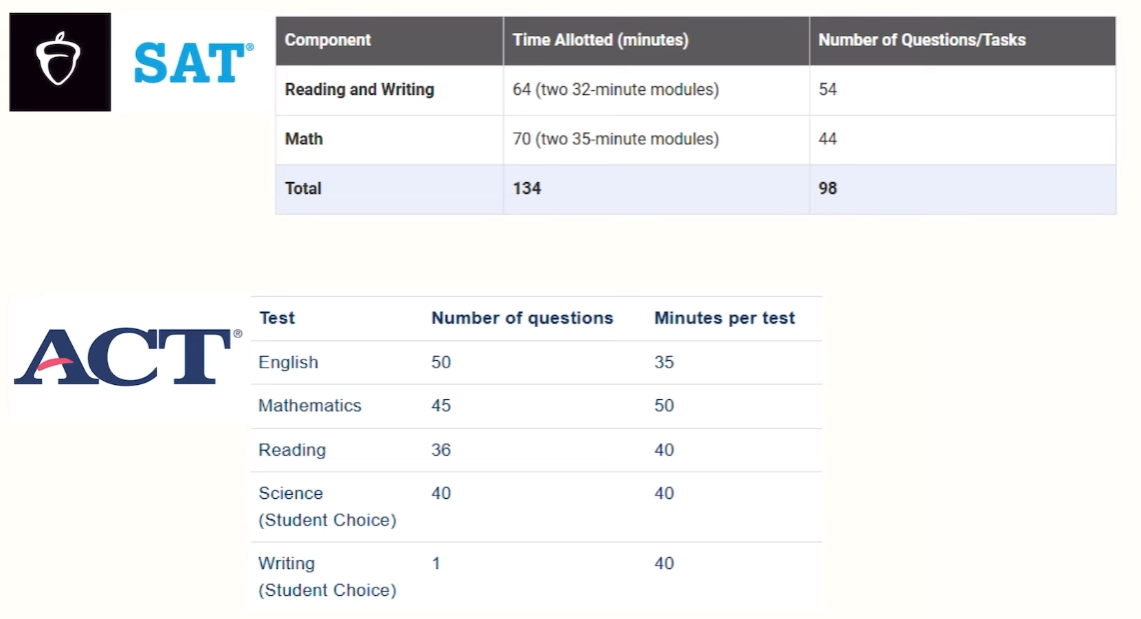Let Me Give You a Clear and Confident Answer.
As more colleges move away from test-optional policies and return to requiring standardized tests, understanding the right timeline has become more important than ever.

In fact, several well-known institutions—including Cornell, UPenn, Johns Hopkins, and Carnegie Mellon—have already reinstated SAT/ACT requirements. It’s also worth noting that many public universities have done the same, even if they aren’t mentioned in most news headlines.
So—when should you begin preparing, and how long should your prep last?
The Core Advice: Focused, Time-Bound Prep Is Best
At A-One Institute, we’ve worked with thousands of students and tracked admissions outcomes for years. What I’m sharing here is based on deep teaching experience and long-term trends. Please take it seriously—it can dramatically impact your results.
Here’s the most important thing to know:
The SAT and ACT are exams that should be tackled with intensity—not over long stretches of time.
Unlike school subjects, these tests are best prepared for in concentrated blocks. Dragging prep out over six months—or worse, several years—is inefficient and can actually reduce your chances of success.
Consider the common pitch many prep centers make:
“Take our course over summer. If you don’t hit your target score, you can take it again for free!”
It might sound like a great deal—but it’s a risky approach. Starting prep before you’re truly ready often leads to 8–10 weeks of work, followed by disappointment, and then another cycle of prep… and another.
Before long, you’ve lost an entire year chasing test scores—while missing out on valuable experiences like:
-
Academic competitions
-
Research projects
-
Community service
-
Summer programs
These are all opportunities that strengthen your college profile, and they can be lost to prolonged test prep.
That’s why we emphasize:
Set a time frame. Prepare intensely. Finish the test. Then move on.
The Ideal Prep Timeline
The best time to prepare for the SAT or ACT is during school breaks, when you can study without the distractions of regular classes and extracurriculars.
Here’s how long to aim for:
-
School breaks: 8–10 weeks of focused prep
-
During the school year: 13–18 weeks of distributed prep
But how do you know if you're ready to start prep within one of these windows? The answer depends on your starting point—especially in English.
Readiness Benchmarks for SAT/ACT Prep

Start by taking a quick diagnostic. You don’t need to do every section.
-
SAT: Take only the Reading & Writing section (54 questions total)
-
ACT: Take only the Reading section (36 questions)
Then, use the following scores to assess your readiness:

Benchmark 1:
-
SAT Reading & Writing: 620
-
ACT Reading: 28
If you’re ending 9th grade and score below this, do not begin prep. Your English skills are still developing through schoolwork, and time will help improve them naturally.
Why focus on English?
Because math is easier to improve with focused prep. But reading and writing take longer to develop, which is why English is a better readiness indicator.
What If Your Goal Is...
-
SAT 1450 / ACT 33
→ Score of 620 (SAT) or 28 (ACT) is good enough to begin. -
SAT 1500+ / ACT 34+
→ Score of 620 / 28 is likely too low. Better to wait and retest later.
Benchmark 2:
-
SAT Reading & Writing: 660
-
ACT Reading: 30
If you reach this by the end of 10th grade and your target score is in the 1450–1500 or 33–34 range, you’re ready to begin prep.
But again—if you’re aiming for an even higher score:
-
SAT 1550+ / ACT 35+
→ You may still want to wait for a higher baseline before starting.
Some students worry: Won’t that be too late? Not at all.
Focused prep, even after 11th grade, can still yield excellent results—especially for students who perform well under pressure and learn efficiently.
Benchmark 3:
-
SAT Reading & Writing: 700
-
ACT Reading: 32
If your target is top-tier (SAT 1550+ or ACT 35+), and you’ve hit this score, now is a strong time to begin your prep.
Final Thoughts and Recommendation
Throughout this guide, we’ve shared three benchmarks to help guide your prep strategy:
-
SAT 620 / ACT 28
-
SAT 660 / ACT 30
-
SAT 700 / ACT 32
Use these as your roadmap. Prep in a concentrated block. Avoid dragging it out. Let your English diagnostic lead the way.
At A-One Institute, our expert instructors run live, online SAT/ACT prep courses that follow these exact principles. We encourage you to explore them if you're preparing for the exam.
We hope this guide has given you the clarity and confidence you need to plan your testing journey.
Thank you for reading!
SAT
ACT
Exam
